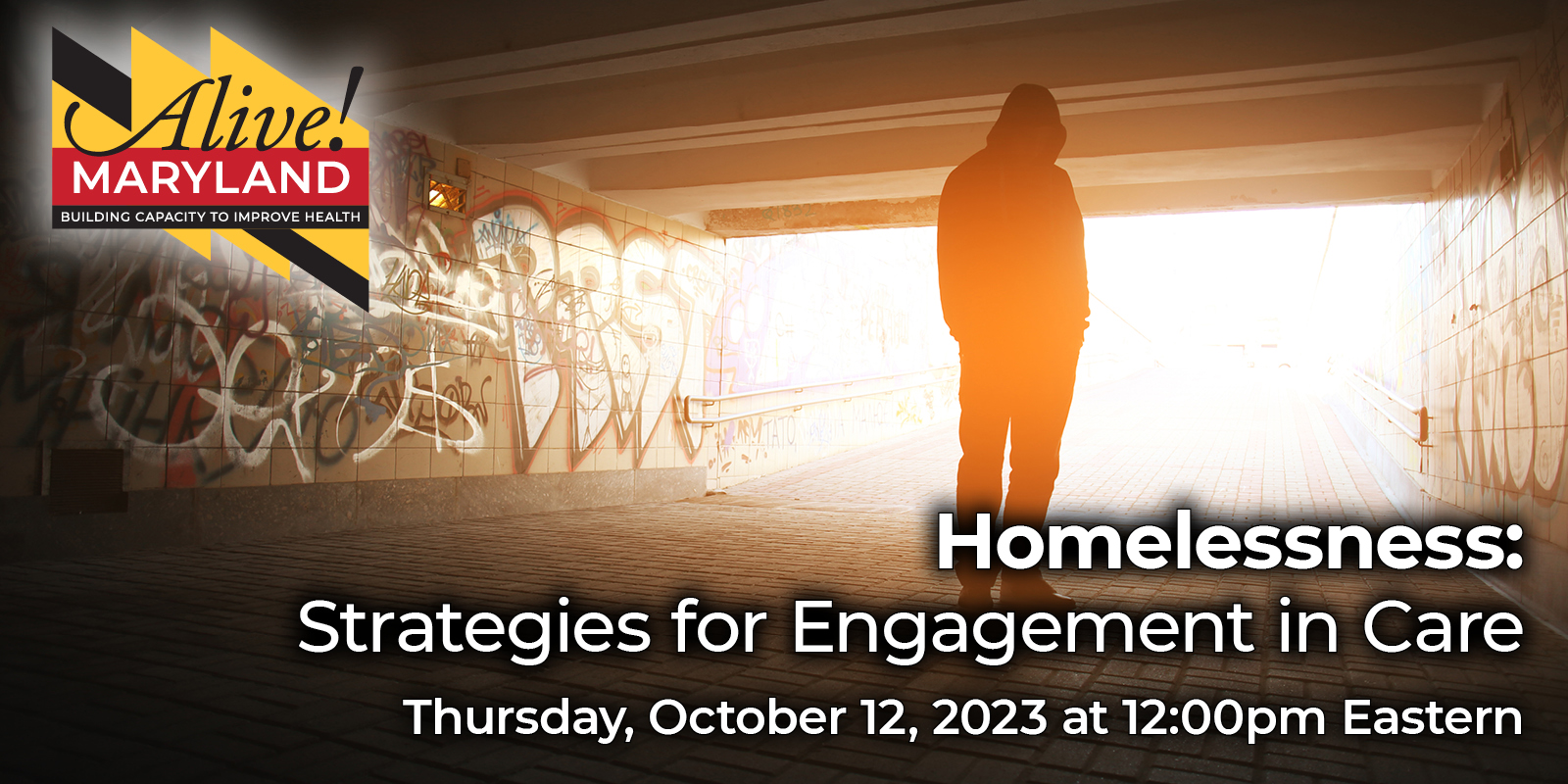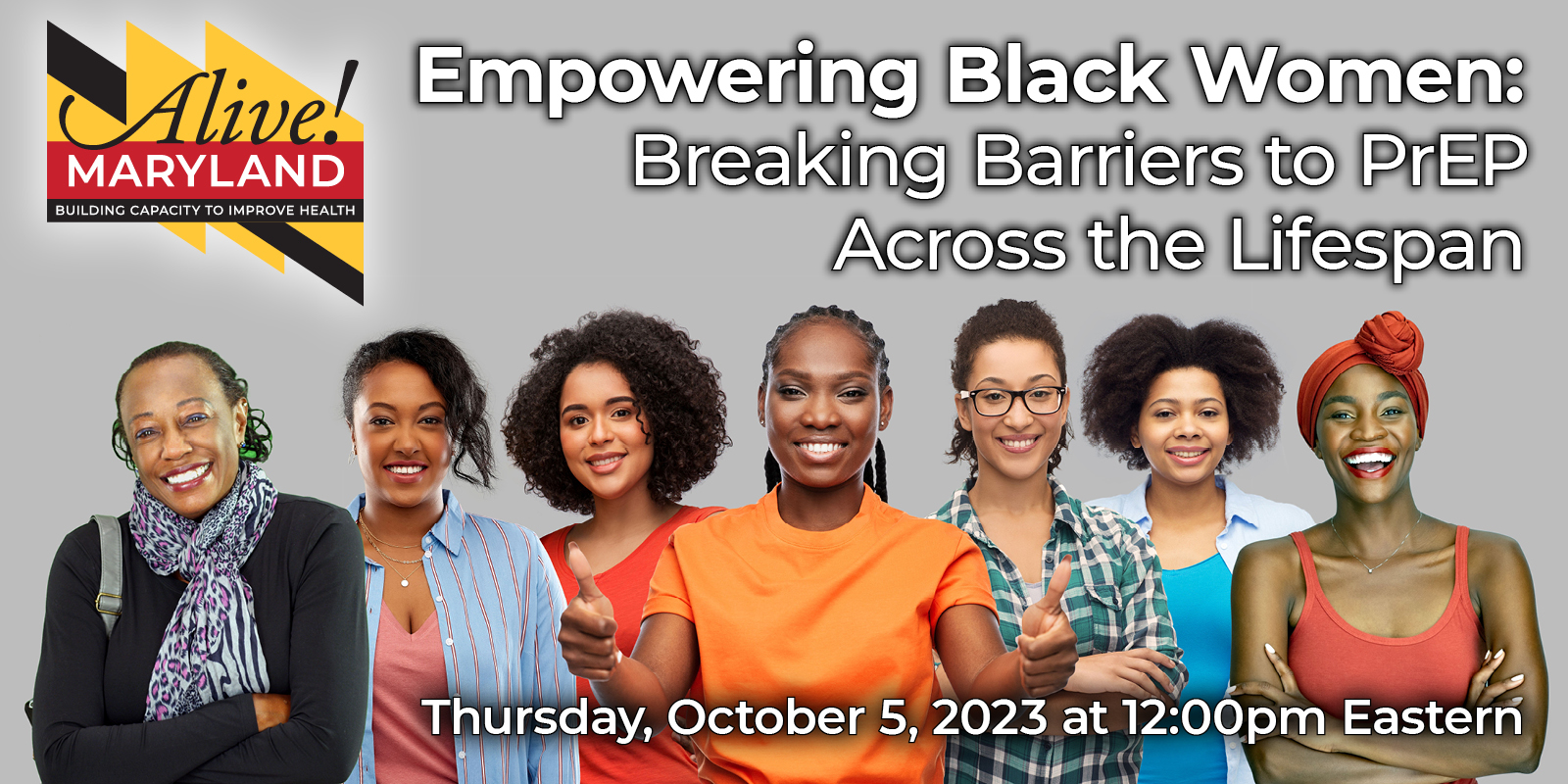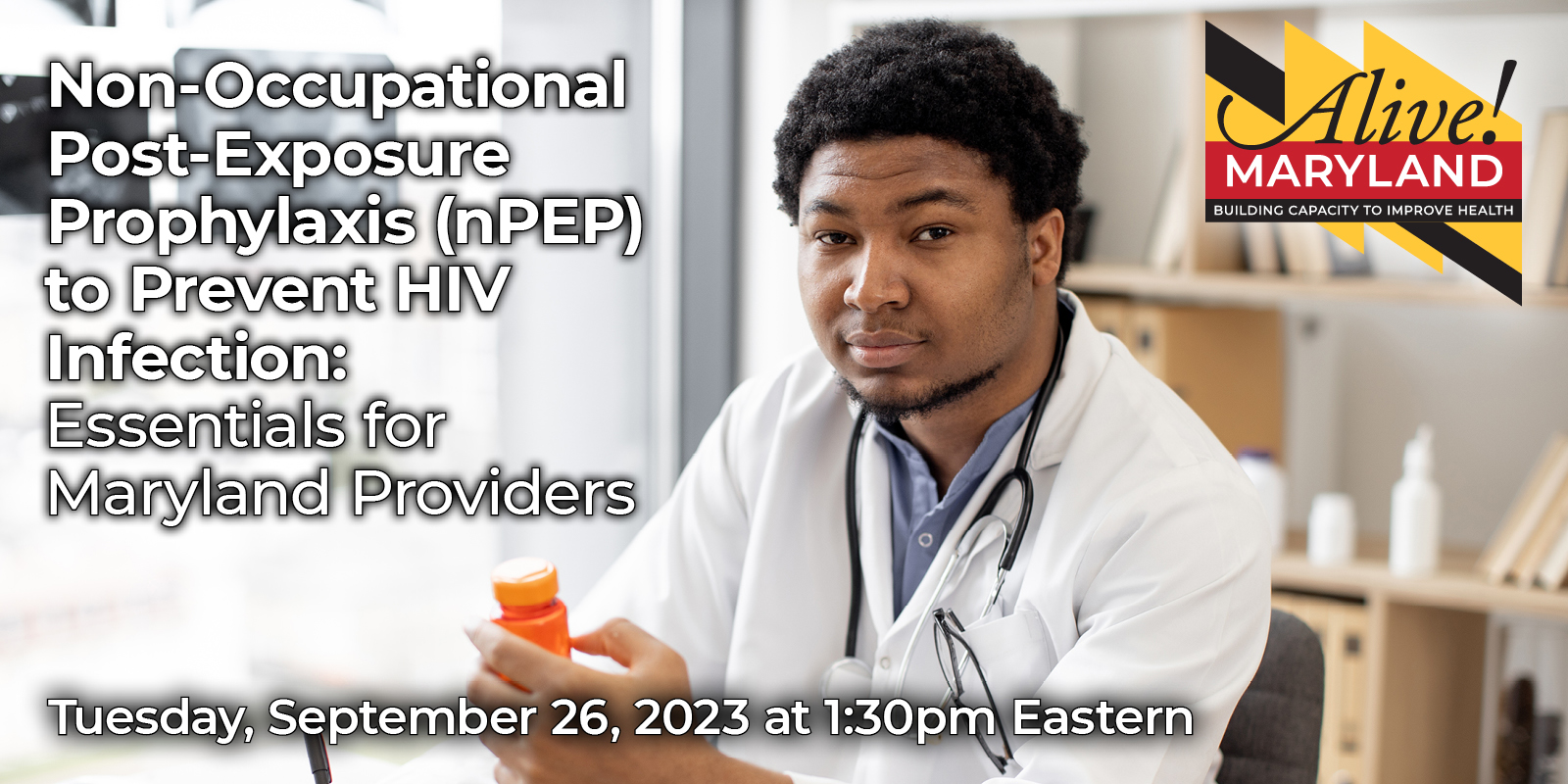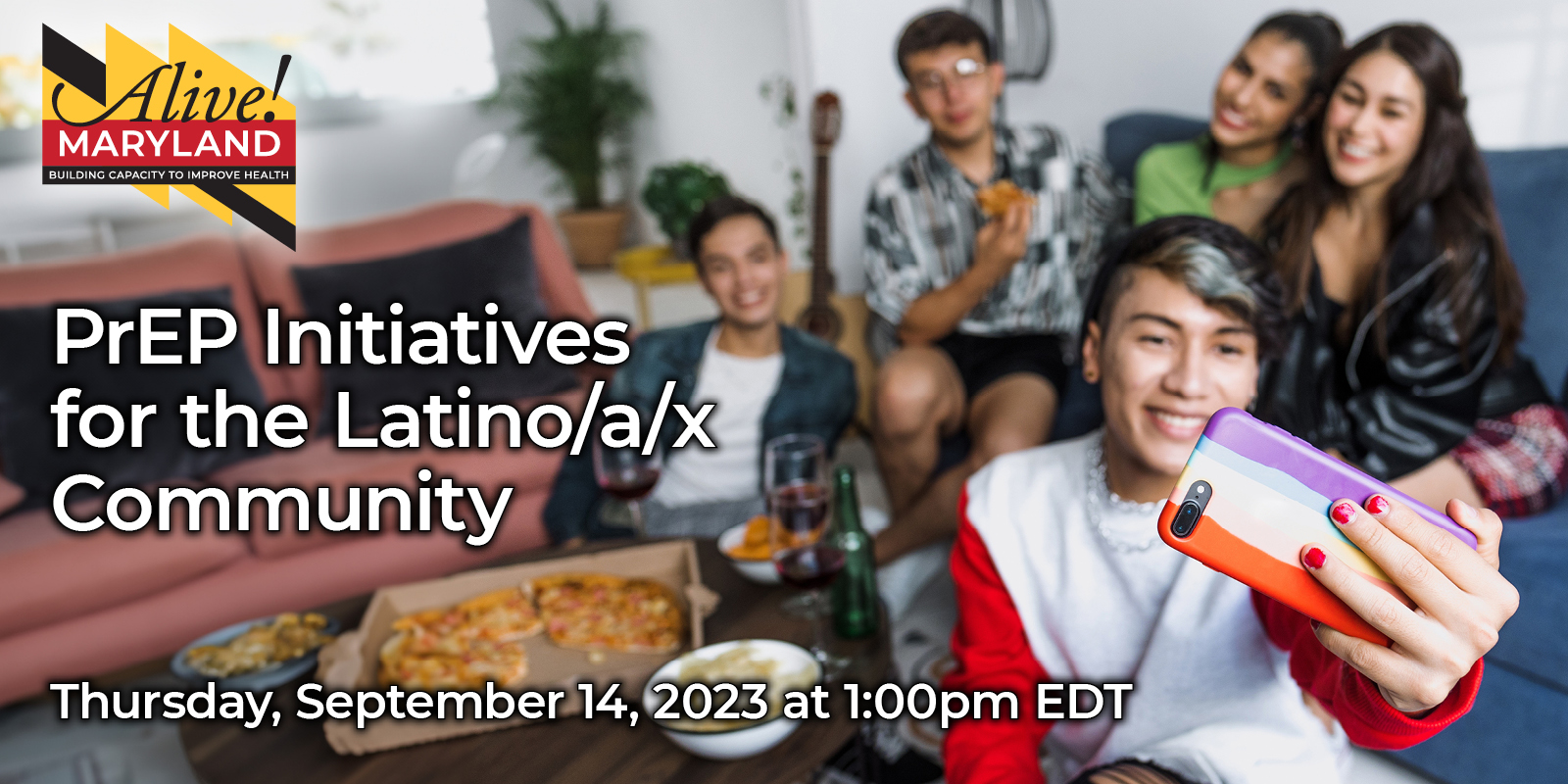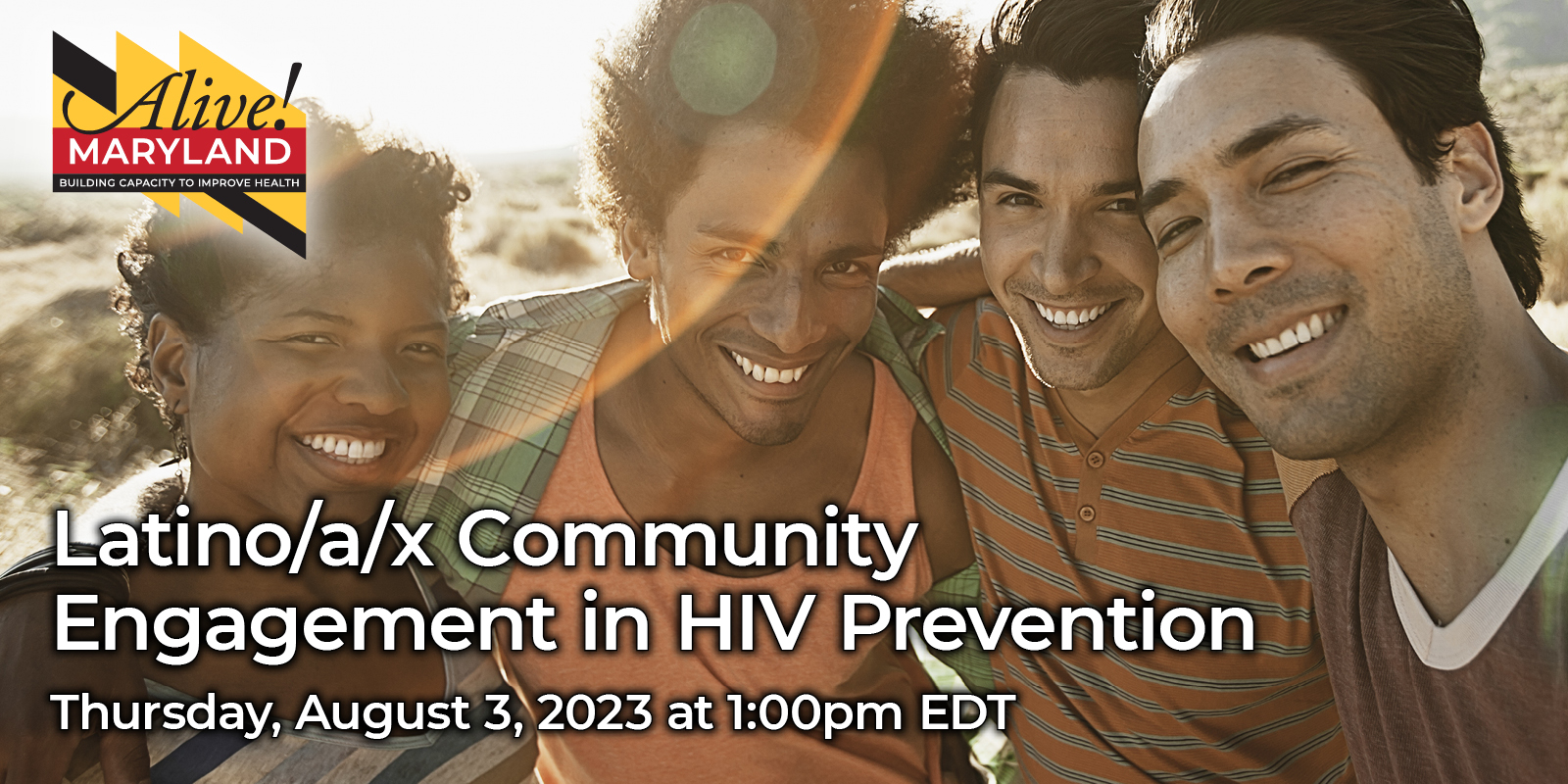What’s Next? PrEPping for Injectables Webinar Series
Online EventThe PS19-1904 Track B Capacity Building Assistance providers of Washington University in St. Louis, Latino Commission on AIDS, University of Rochester, and San Francisco Department of Public Health will host a four-part virtual series that will address injectable PrEP.
Homelessness: Strategies for Engagement in HIV Care
Join Alive! Maryland, led by HealthHIV, on Thursday, October 12, 2023 at 12:00pm Eastern for a webinar that will discuss strategies to engage and retain people experiencing homelessness in HIV care.
Prime Time for Medicare Outreach and SHIP: Tools & Tips on Helping Clients Enroll in Medicare Prescription Coverage
Online EventThis session will cover: Medicare Outreach and SHIP MADAP Requirements and Medicare Resources The ABCDs and Supplements of Medicare Enrollment Plans Payable by MADAP Best Practices Q&A Additional information on this session will be available soon.
Uniting for Health: Engaging Latino/a/x Faith-Based Organizations in HIV Prevention
Join Alive! Maryland and HealthHIV on Friday, October 6, 2023 at 1:00pm Eastern for a webinar that will discuss engagement with Latino/a/x faith groups and organizations. The faculty will give an overview of Latino/a/x-focused FBOs in Maryland, explore the personal assessment process as well as the development of strategic religious engagement plans, and provide various resources.
Empowering Black Women: Breaking Barriers to PrEP Across the Lifespan
PrEP is highly effective for preventing HIV, yet PrEP use among Black women is very low. Barriers include lack of awareness, negative experiences with providers, lack of confidence that providers know about PrEP, daily uptake, and negative response from partners. Join Alive! Maryland, led by HealthHIV, on Thursday, October 5, 2023 at 12:00pm Eastern for […]
Prime Time Priorities for MADAP: Tools & Tips on Open Enrollment Outreach to Uninsured Clients
Online EventThis session will cover: Priorities for MADAP MADAP/MADAP Plus Basics Health Care Insurance Benefits, Requirements, and Notifications Plans Payable by MADAP Best Practices Q&A Additional information on this session will be available soon.
Non-Occupational Post-Exposure Prophylaxis (nPEP) to Prevent HIV Infection: Essentials for Maryland Providers
Non-Occupational Post-Exposure Prophylaxis (nPEP) for HIV prevention is the use of antiretroviral drugs as soon as possible after a high-risk exposure to HIV. Increasing awareness of and access to nPEP leads to fewer HIV diagnoses and is an important strategy for Ending the HIV Epidemic. Join Alive! Maryland, led by HealthHIV, on Tuesday, September 26, […]
What’s Next? PrEPping for Injectables Webinar Series
Online EventThe PS19-1904 Track B Capacity Building Assistance providers of Washington University in St. Louis, Latino Commission on AIDS, University of Rochester, and San Francisco Department of Public Health will host a four-part virtual series that will address injectable PrEP.
PrEP Initiatives for the Latino/a/x Community
This webinar will provide an overview of different PrEP initiatives that have been proven effective in the Latino/a/x community. The faculty will also discuss practical strategies that increase the knowledge, comfort, and skills of providers to engage this community in PrEP services.
What’s Next? PrEPping for Injectables Webinar Series
Online EventThe PS19-1904 Track B Capacity Building Assistance providers of Washington University in St. Louis, Latino Commission on AIDS, University of Rochester, and San Francisco Department of Public Health will host a four-part virtual series that will address injectable PrEP.
MADAP Quality Management Committee, Q3 2023
The Maryland AIDS Drug Assistance Program (MADAP) will hold a MADAP Quality Management Committee meeting on Wednesday, August 9, 2023, from 2:00 to 4:00 pm. All are welcome to listen along as the committee discusses performance measures and quality improvement projects.
Latino/a/x Community Engagement in HIV Prevention
This webinar will provide a comprehensive understanding of Latino/a/x cultural background, barriers to testing and access to care that Latino/a/x patients experience, and strategies for providing optimal and equitable HIV prevention and care services for this community.

